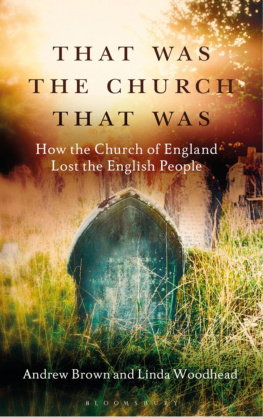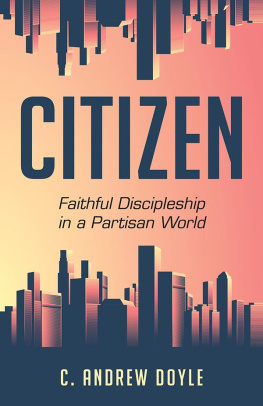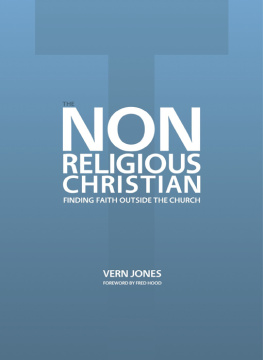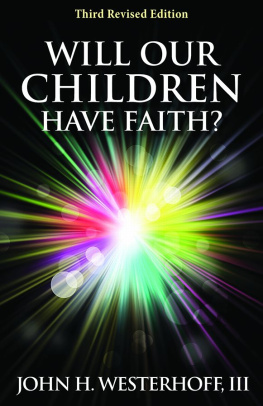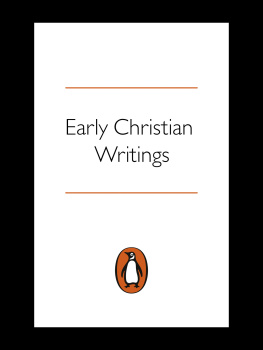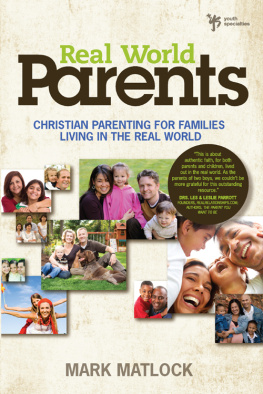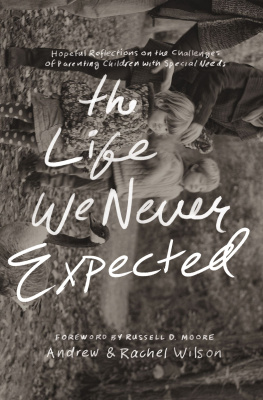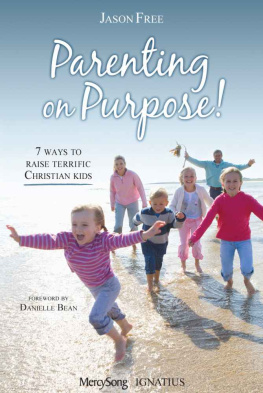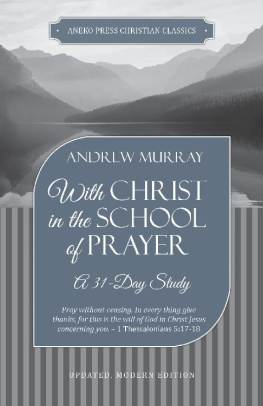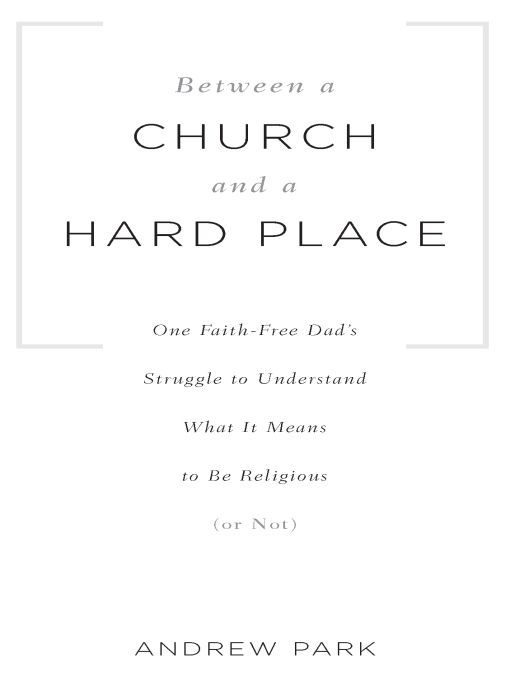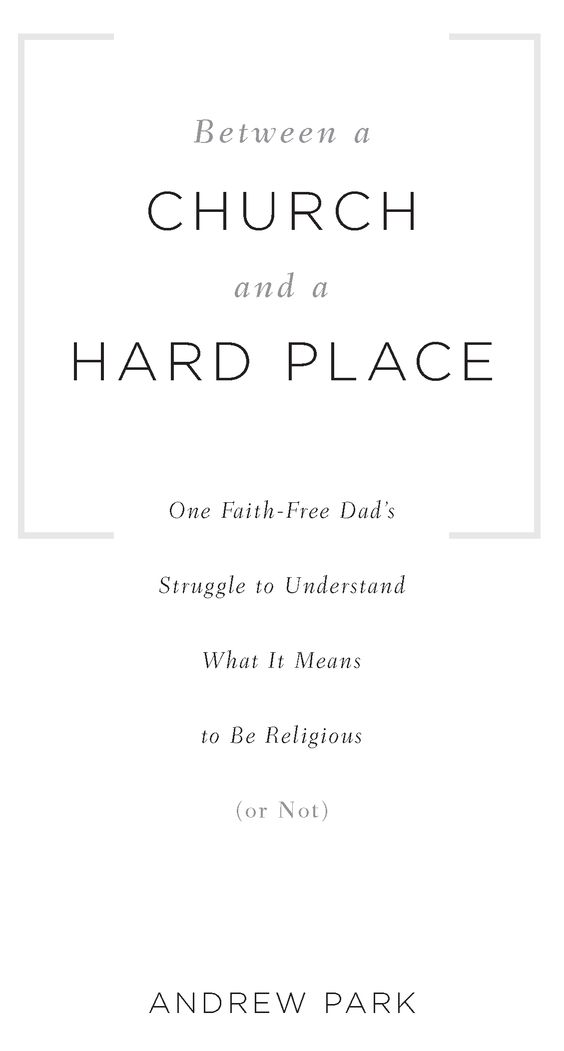Table of Contents
AVERY
a member of Penguin Group (USA) Inc.
New York
In memory of my parents
Wouldnt it be weird if you died, and you woke up, and you were in heaven, just like they always told you? And everybody had wings on, and the pearly gates? Wouldnt you feel stupid?
STEVE MARTIN
[ one ]
CHAPEL CHAT
My son was three years old the first time I heard him say God.
He didnt get it from me.
Cristina and I had recently enrolled him in preschool at a Methodist church a short drive from our house. Wed had him in a program three mornings a week at another church near our house, also MethodistWelcome to the Bible Belt!until the day I arrived early for pickup and found him on one of the playground benches, curled up as if back in the womb and unable to explain what had caused this despair. The incident, the last in a long string of red flags since a new teacher had arrived that fall, had provided our first experience with the brand of parental guilt that keeps you awake at night, wondering how you turned out to be such an awful person that you would consider outsourcing the rearing of your child for even one second. For a couple of months after that, we kept him home. Eventually, though, wed had to acknowledge that the boy had taken well to the stimulation and structure preschool offered, and now that we had another child, his mother needed a break from full-time parenting. This new batch of Methodists seemed like good people who would care for him properly. But there was one hitch: Once a week the kids were lined up and led from their classrooms to the sanctuary for a short religious lesson the preschool called Chapel Chat.
Now, my wife and I had for the most part avoided chapels since becoming adults. And the last thing we wanted to do was chat in one. We didnt belong to any church, and our feelings about organized religion, like our feelings about organized labor and organized crime, were, at best, ambivalent. We found all three were best experienced only as part of Hollywood movies. But that left us in a pickle: So that we could care for my elderly father and be near old friends, we had recently moved back to the midsized North Carolina city in which I had grown up, a place where nine out of ten preschools were run by churches. When touring these facilities, our first question for the director was always whether the children were subjected to any of that, you know, Jesus stuff, and to our surprise, not that many did. I suppose it made sense in a competitive market to stay as secular as possible. But it was midway through the academic year and most of the good programs (and by good, I mean ones where you didnt feel the need to make unannounced visits to make sure your son wasnt being left to wallow in a puddle of his own misery while the other children were playing on the monkey bars) were already full. Knowing we were lucky to find an opening at this one, we decided to take our chances.
To our relief, our son adapted well to his new environment, and, for the most part, it wasnt much different from the old one. At this program, instead of having to come inside to pick up our children, we parents lined up in our station wagons and minivans and one by one the kids came running out to greet us. The new routine seemed to make our son feel a bit more grown-up, and as he warmed to his new teachers, we began to feel like we had atoned for the earlier debacle. That is, until that day, when we were reminded of the fragility of parental success, not to mention how uneasy the topic of religion made us both.
We were sitting on the ell-shaped couch in our den, passing the time in one of the amazing yet quickly forgotten ways that you do when your free hours are given over to bringing up small children, when His name came out of his mouth. Our reaction was approximately the same as if the word had been antediluvian or nanotechnology. Like most parents, we greeted every new addition to his vocabulary with a glee that would make innocent bystanders gag. But this one came out of nowhere, and I had no idea how to react. I wanted to grab it out of the air and gently shove it back into his mouth for a few more years. The context in which he said it was never clear. It just kind of spilled out, but neither of us had any doubt it was Yahwehs nickname that had breached his perfect lips. I said nothing, my wide eyes fully expressing my internal alarm. Cristina remained calm, the way you would if a kid was test-driving a bad word picked up at school and you were afraid an overly animated reaction might encourage him to add it to his everyday conversation.
Do you know who God is? she asked him gently.
Yes. God makes us.
His matter-of-fact response indicated that the answer was so obvious as to be a priori. Cristina glanced at me but decided to ignore the panic now erupting visibly all over my face. She turned back to him and tried probing a bit deeper.
How does God make us?
Again, he knew the answer, and he delivered it with the confidence that comes with knowing something is the undisputed truth.
He screws on our heads and pops in our eyeballs.
Upon hearing this, my worry subsided a bit. Whatever he had picked up at preschool was too absurd to be of any harm. In the days to come, I delighted in passing on this adorable little anecdote to friends and relatives.
But before long, from his crude initial hypothesis, my son began to formulate what is referred to in religious literature as a Christian worldview. His mind was made up about the existence of God. And how. But the details still tripped him up. For instance, he wondered why there was a big X on the top of churches we passed while driving in the car.
Cristina and I tried to respond by balancing our own lack of traditional belief with a sincere appreciation for his curiosity. Independently, we each decided that all discourse about matters of faith should be prefaced by the phrase Well, some people believe... This seemed like a sensible disclaimer that would help him understand that absolute truth is an elusive thing in the world into which he had been born. But we both knew full well we were just trying to buy some time until we had something more definitive to tell him or at least thought him mature enough to accept our squishiness. We knew that he didnt care about some people. He wanted to know what we, his parents, believed, what to us was true, what to us was real. But we couldnt tell him. We were as reluctant to say something that would stifle his thought as we were to let him believe everything that the Methodists told him. For a while, as a compromise, we tried substituting Mother Nature for God. This, too, struck us as quite sensible: We both loved nature, wanted our children to appreciate and respect it, too, and liked the idea of a little pro-woman affirmative action in the supernatural realm. But ultimately she proved no better than the Man Upstairs. She was a poor proxy, only prompting more questions we couldnt seem to answer. In actuality, they were the same questions, just with a different omniscient, omnipresent deity making mysterious decisions, like letting a good person do a bad thing or a flower die or one animal savage another for food. We were usually successful in directing the conversation elsewhere, but that tactic only lulled us into thinking we were addressing the issue when we werent, making his inevitable inquiries just as startling the next time they came round. If we couldnt answer even a simple question, someone else certainly would. At this rate, hed be born-again before he got to kindergarten.



